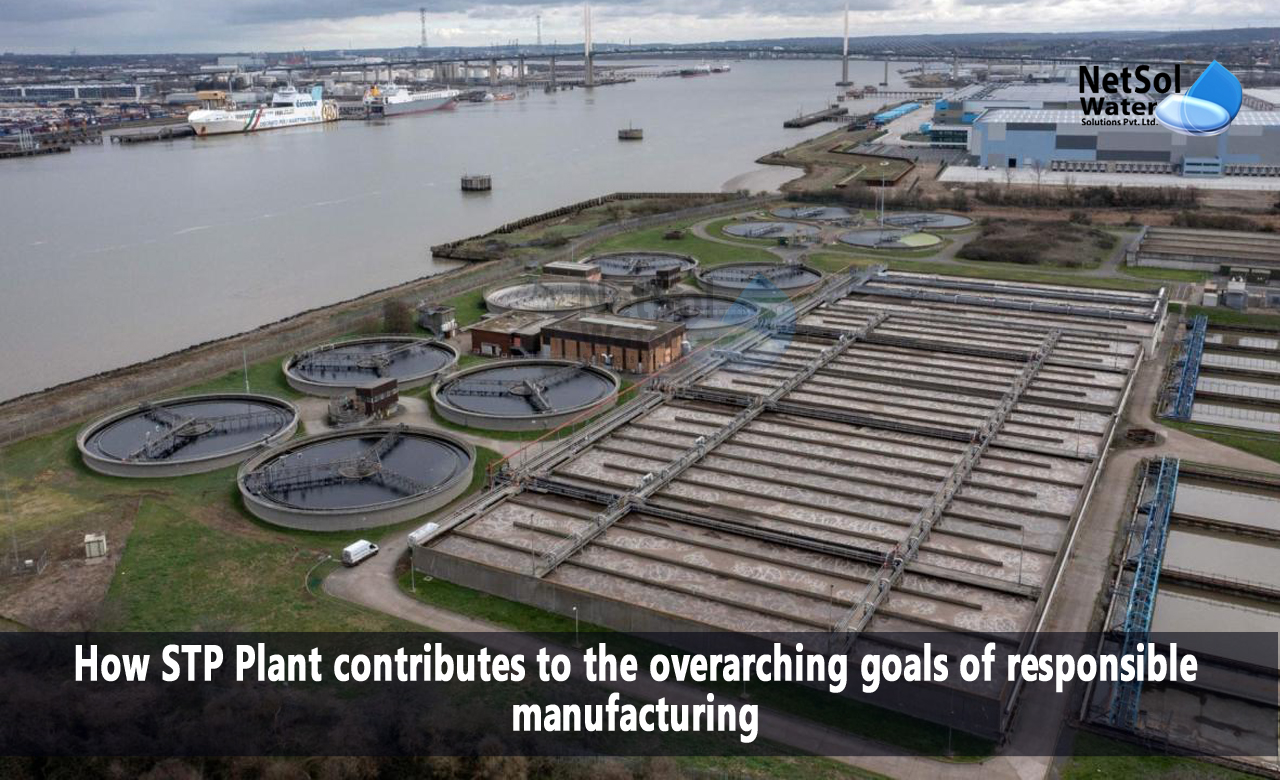STP Plants: The Cornerstone of Responsible Manufacturing Practices
In today's rapidly evolving industrial landscape, responsible manufacturing practices are paramount for companies aiming to make a positive impact on the environment and society. A crucial aspect of responsible manufacturing is the effective management of wastewater. Sewage treatment plants play a pivotal role in this endeavor, serving as the cornerstone of sustainable and responsible manufacturing practices.
In this blog post, we will explore the significance of sewage treatment plants and how they contribute to the overarching goals of responsible manufacturing.
-
Comprehensive Wastewater Management:
Wastewater generated by manufacturing processes can contain a wide range of pollutants, posing significant environmental and health risks if not properly managed. Sewage treatment plants provide a comprehensive solution for managing and treating this wastewater effectively. These plants employ various treatment processes, including physical, chemical, and biological methods, to remove contaminants and pollutants, ensuring that the discharged water meets regulatory standards. By implementing sewage treatment plants, manufacturers demonstrate their commitment to responsible wastewater management, safeguarding the environment and public health.
-
Environmental Protection and Preservation:
One of the primary objectives of responsible manufacturing practices is to minimize environmental impact and preserve natural resources. Sewage treatment plants play a critical role in achieving these objectives. By treating wastewater on-site, manufacturers prevent the release of untreated or inadequately treated wastewater into rivers, lakes, or oceans, preserving water quality and protecting aquatic ecosystems. The removal of pollutants and contaminants ensures that the discharged water is environmentally safe, minimizing harm to flora, fauna, and the overall ecosystem. Sewage treatment plants are thus essential in upholding environmental sustainability and biodiversity conservation.
-
Resource Recovery and Circular Economy:
Responsible manufacturing practices prioritize the efficient use of resources and the transition towards a circular economy. Sewage treatment plants facilitate resource recovery from wastewater, transforming what was once considered waste into valuable resources. For example, organic matter present in wastewater can be utilized for biogas production through anaerobic digestion. This biogas can serve as an energy source for manufacturing processes, reducing reliance on non-renewable energy and mitigating greenhouse gas emissions. Additionally, valuable nutrients such as nitrogen and phosphorus can be recovered from wastewater and used as fertilizers or in other industrial applications. By embracing sewage treatment plants, manufacturers actively contribute to resource conservation and the principles of the circular economy.
-
Regulatory Compliance and Reputation:
Compliance with environmental regulations is an integral aspect of responsible manufacturing. Sewage treatment plants enable manufacturers to meet and exceed regulatory standards for wastewater treatment and discharge. By adhering to these regulations, companies not only avoid legal penalties and reputational damage but also showcase their commitment to ethical and responsible practices. Embracing sewage treatment plants demonstrates transparency, accountability, and a proactive approach to environmental compliance, enhancing a company's reputation and fostering trust among stakeholders, customers, and the wider community.
-
Innovation and Continuous Improvement:
Sewage treatment plants encourage innovation and continuous improvement in manufacturing processes. By investing in advanced treatment technologies and monitoring systems, manufacturers can optimize wastewater treatment efficiency, reduce energy consumption, and enhance overall operational performance. The integration of sewage treatment plants drives research and development, inspiring the development of more sustainable and efficient manufacturing practices. By embracing innovation, manufacturers position themselves at the forefront of responsible manufacturing, ensuring long-term competitiveness and resilience.
Conclusion:
Sewage treatment plants serve as the cornerstone of responsible manufacturing practices by enabling comprehensive wastewater management, environmental protection, resource recovery, regulatory compliance, and continuous improvement. By incorporating these plants into their operations, manufacturers actively demonstrate their commitment to sustainable practices and contribute to the global goals of environmental stewardship. Sewage treatment plants are not just infrastructure; they represent a fundamental shift towards responsible and ethical manufacturing, laying the foundation for a more sustainable future.
Netsol Water is Greater Noida-based leading water & wastewater treatment plant manufacturer. We are industry's most demanding company based on client review and work quality. We are known as best commercial RO plant manufacturers, industrial RO plant manufacturer, sewage treatment plant manufacturer, Water Softener Plant Manufacturers and effluent treatment plant manufacturers. Apart from this 24x7 customer support is our USP. Call on +91-9650608473, or write us at enquiry@netsolwater.com for any support, inquiry or product-purchase related query.



